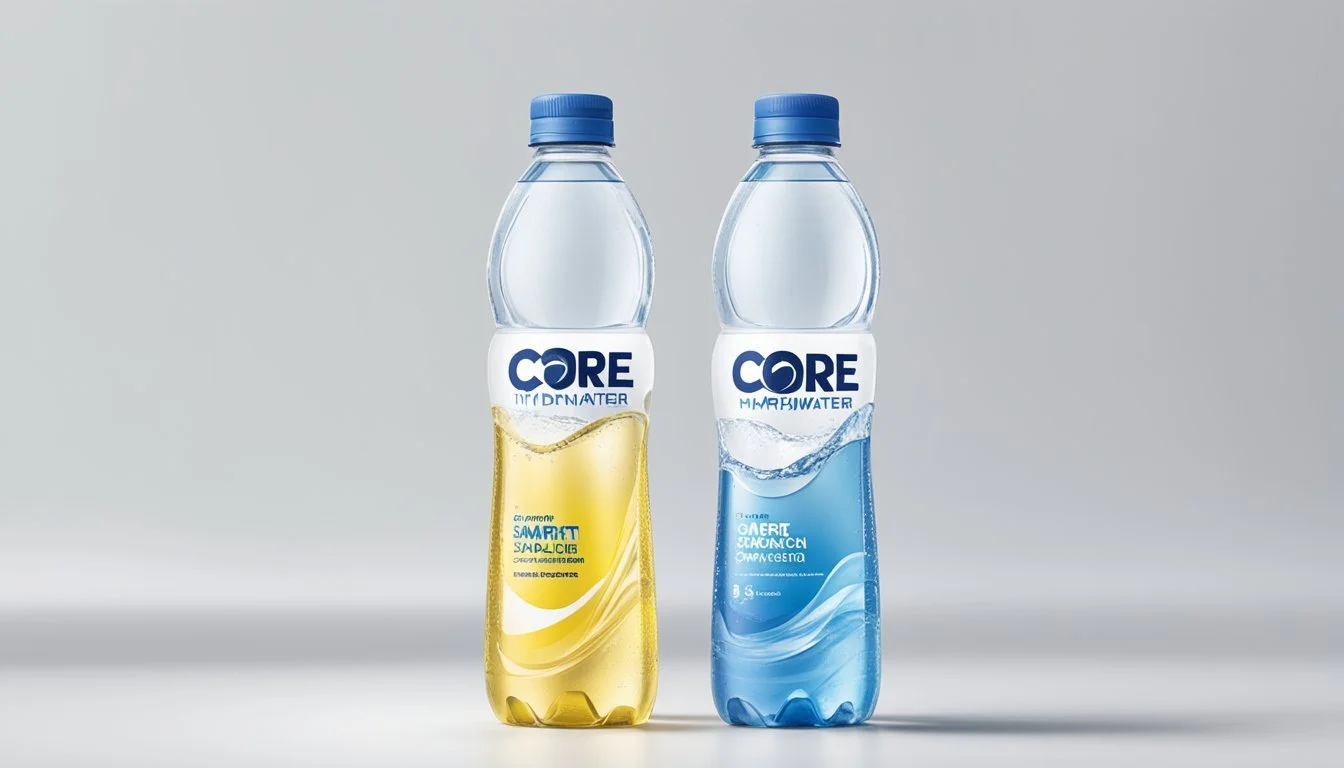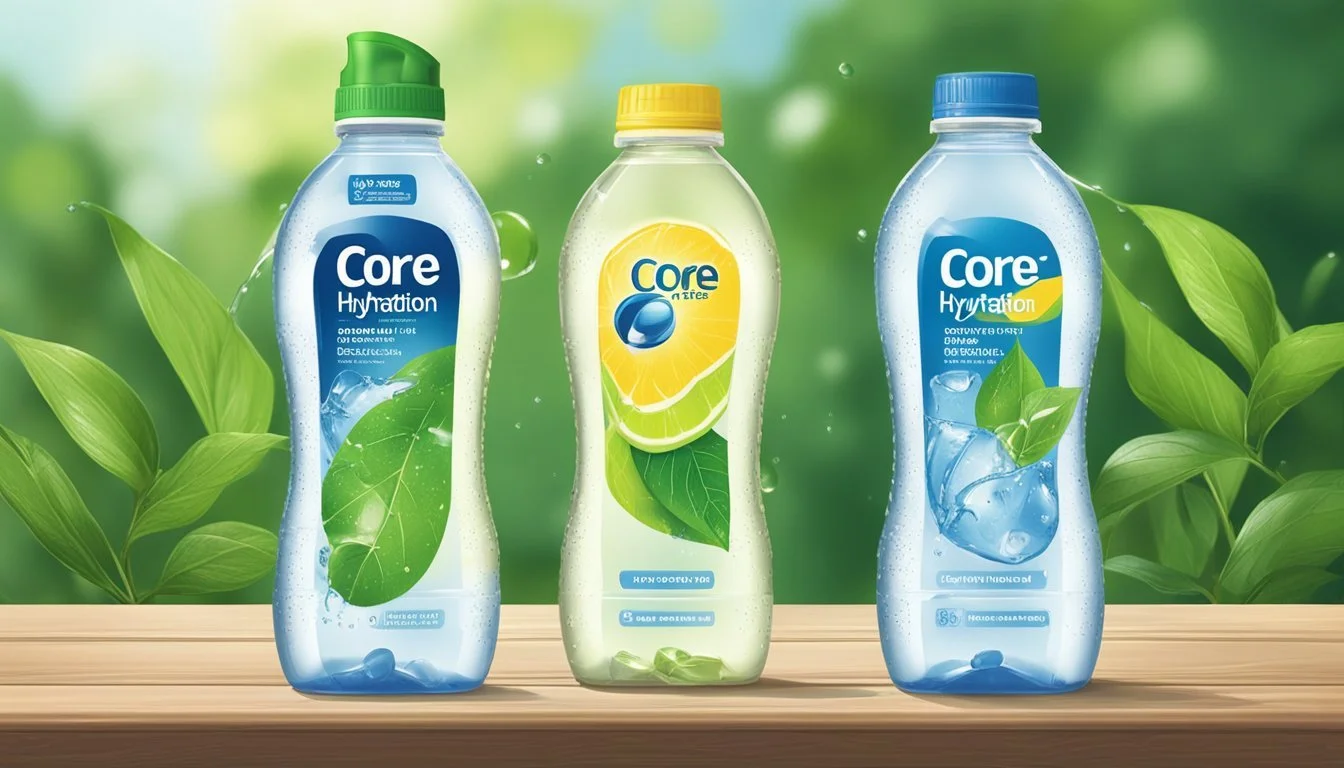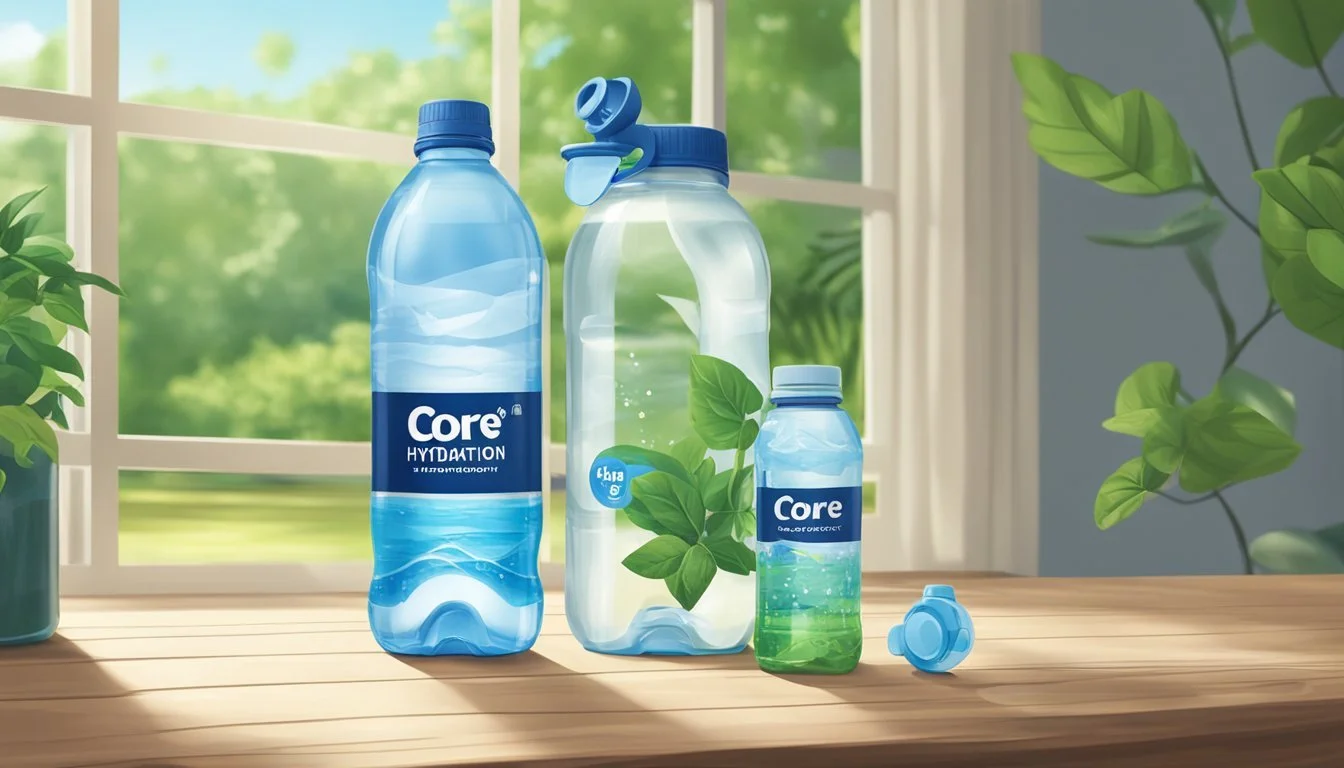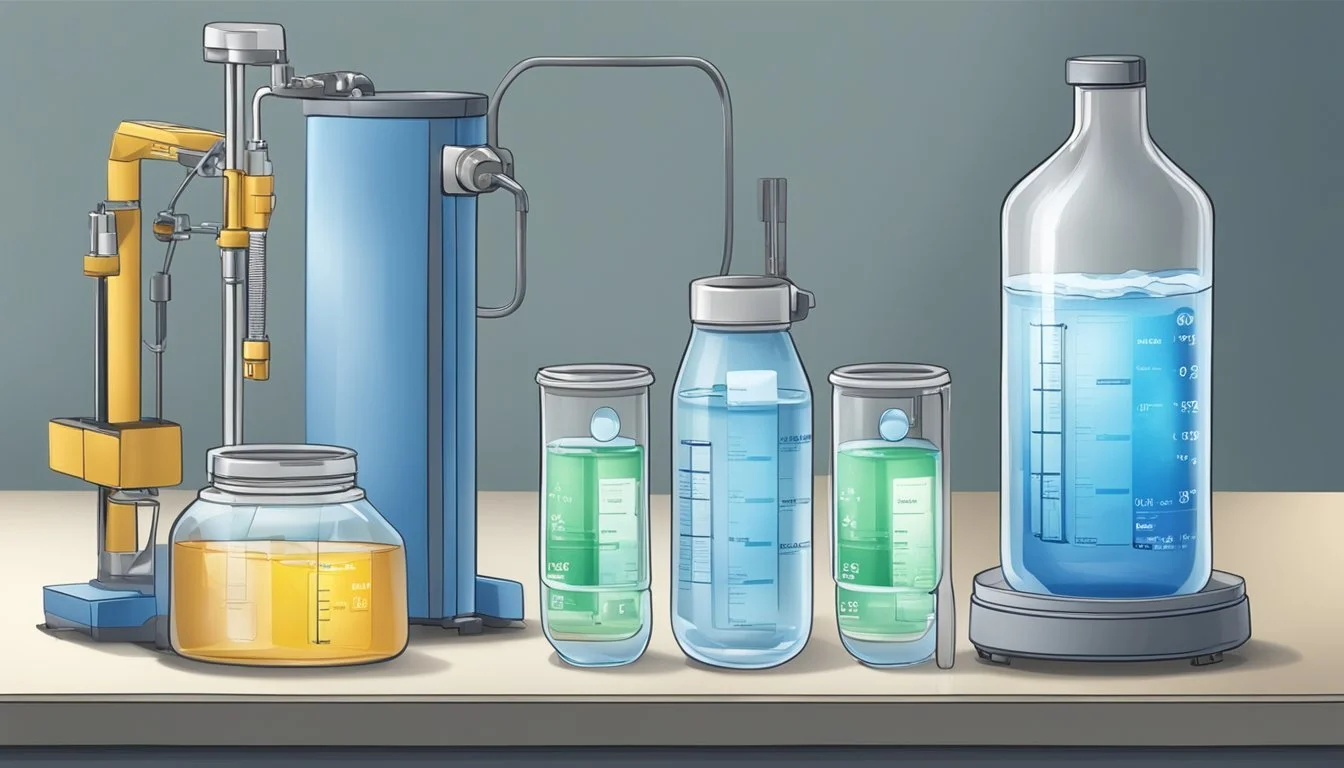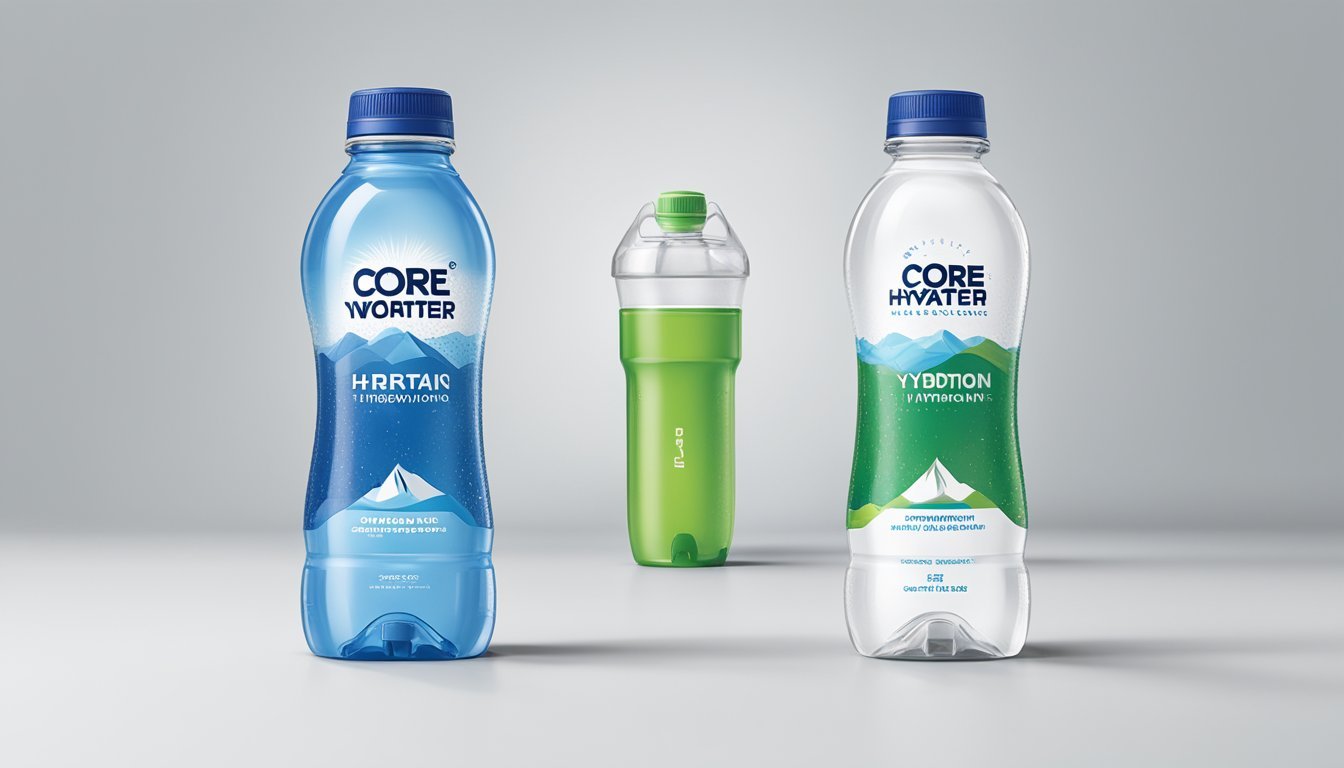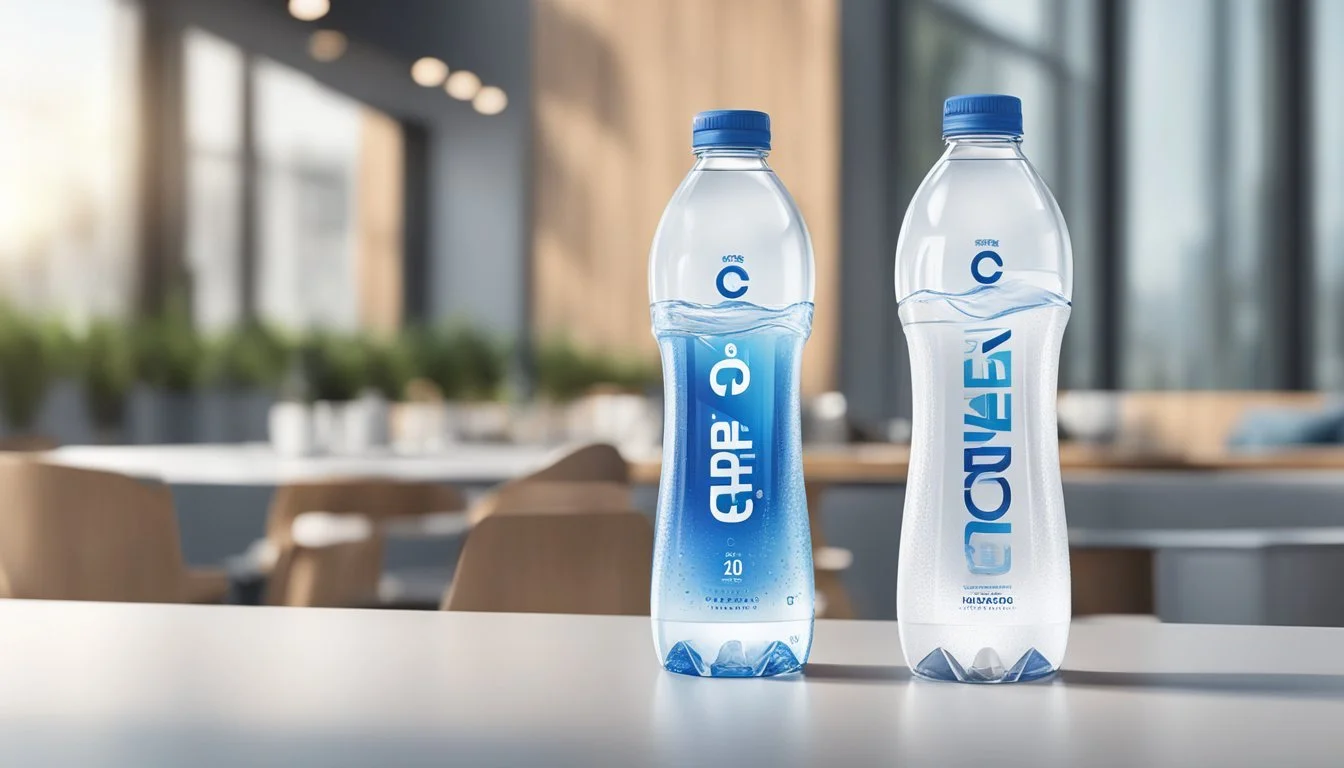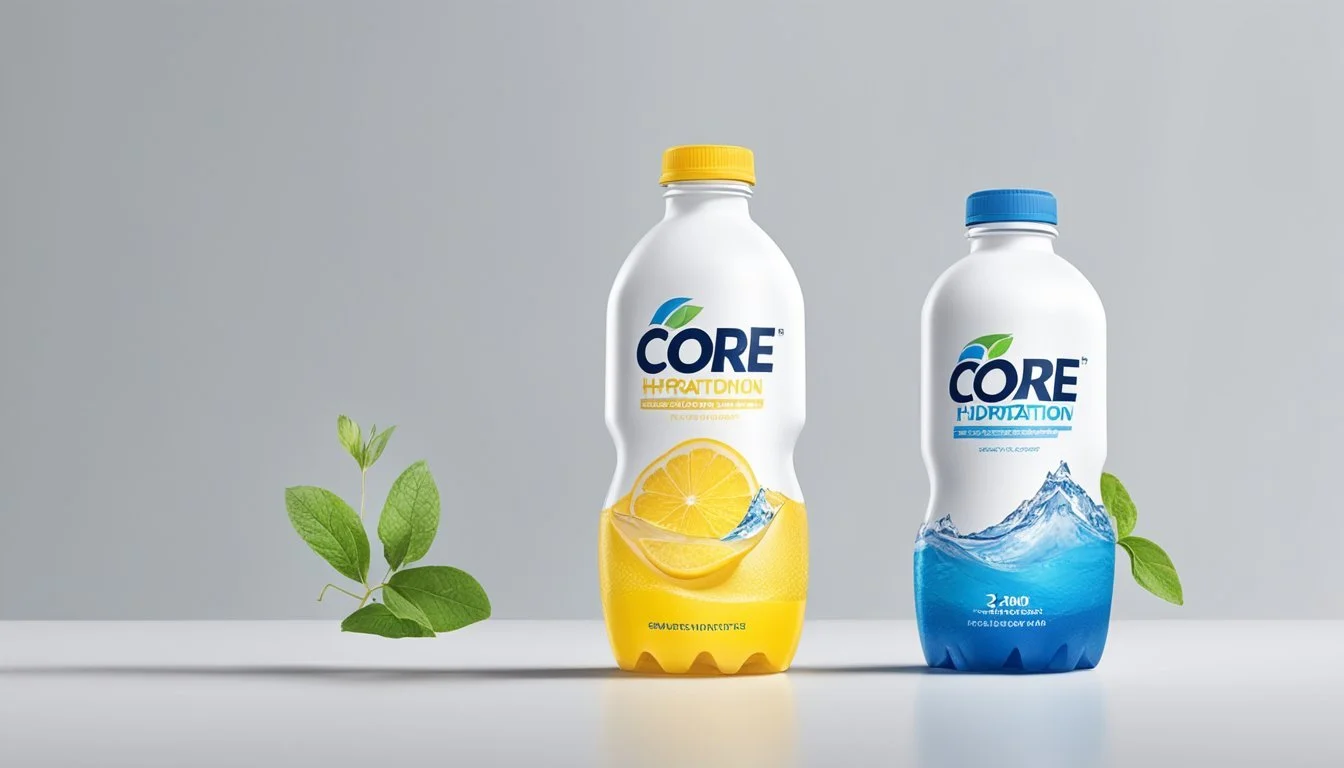Core Hydration vs. Smartwater
An In-Depth Comparison of Bottled Waters
In the world of bottled water, two brands that often spark debate among consumers are Core Hydration and Smartwater. Both brands tout their own unique filtration processes and added electrolytes, positioning themselves as upscale alternatives to standard tap water. With a focus on hydration, Core Water is known for its seven-stage purification process, including reverse osmosis and the addition of minerals and electrolytes for taste. The brand emphasizes matching the natural pH level of the human body, aiming to provide a balanced hydration experience.
Smartwater, on the other hand, is distinguished by its vapor distillation process, inspired by the natural hydrologic cycle. The brand also enhances its product with a blend of electrolytes. Marketed as a premium water choice, Smartwater has carved out a niche for consumers seeking what they perceive as a purer and more refined bottled water experience.
Selecting between Core Hydration and Smartwater ultimately comes down to personal preferences for taste, the specific benefits offered by their respective purification methods, and the added electrolytes' impact on overall hydration. Both brands promise to deliver a higher standard of bottled water, but the question of superiority is subjective and varies based on individual demands and health priorities.
Comparison Criteria
When comparing Core Hydration and Smartwater, several key factors play into determining the superiority of one product over the other. These factors include the source of the water, the methods of filtration and purification, the taste and mouthfeel of the water, and the health and nutritional benefits that each offers.
Water Source
Core Hydration water claims to originate from a deep underground aquifer where impurities are naturally filtered out. Smartwater, on the other hand, sources its water from public water supplies, after which it undergoes further purification processes.
Filtration and Purification
Both brands employ advanced filtration and purification techniques. Core Water utilizes a seven-step process that includes reverse osmosis, ultraviolet light, and ozone exposure. Smartwater also uses reverse osmosis, followed by vapor distillation, ensuring the removal of most contaminants and impurities.
Taste and Mouthfeel
Taste is subjective; however, both brands aim to deliver a clean and crisp taste. Core Hydration is enhanced with electrolytes and minerals, tailored for optimum hydration and a smooth, pure mouthfeel. Smartwater is often described as tasting clean and pure, which can be attributed to its vapor distillation process and added electrolytes for taste.
Health and Nutrition
In terms of health and nutrition, Core Hydration and Smartwater both add a blend of minerals and electrolytes for taste and to complement the diet of the human body. Neither brand contains calories, sugars, or artificial flavors, situating them as healthy hydration choices. It's important to check the nutrition facts for the specific content of each brand.
Brand Profiles
In the bottled water market, two brands stand out for their unique selling propositions and targeted marketing: Core Hydration and Smartwater. Each has crafted a distinct identity to appeal to health-conscious consumers.
Core Hydration
Core Hydration markets itself as a premium water brand that offers a product carefully balanced with electrolytes to match the human body's natural pH level. The water is ultra-purified through a proprietary seven-stage process known as Hydro-7™, designed to remove contaminants and particles to deliver a clean and crisp taste. Core Hydration positions its product not just as regular bottled water but as a healthy lifestyle choice, appealing to those who are particular about the hydration quality and the taste of their water.
Smartwater
Smartwater, on the other hand, is produced by the well-known beverage conglomerate Coca-Cola. It is distinguished by its method of purification, which is vapor-distilled, a process inspired by the way nature purifies water. Smartwater is then enhanced with a blend of electrolytes for added taste. The brand's marketing campaigns highlight the purity and simplicity of the product, aligning with consumers' growing preference for clean and straightforward hydration options. With its minimalist branding and sleek packaging, Smartwater maintains a strong presence in the market as a modern and chic water choice.
Nutritional Content
Choosing between Core Hydration and Smartwater often comes down to comparing their nutritional content, primarily pH levels and the balance of electrolytes and minerals, which are essential for health, hydration, and nutrition.
pH Level Comparison
Core Hydration states its water is balanced with a perfect pH that is in sync with your body’s natural pH level. Typically, this is around 7.4, which is considered to be neutral to slightly alkaline. Smartwater, on the other hand, markets a version of its product called Smartwater Alkaline, which has a higher pH level. The increased alkalinity with a pH of 9.5 aims to play a role in supporting the body’s pH balance, although the health benefits of alkaline water are subject to debate.
Electrolytes and Minerals
Both brands add electrolytes for taste and potential hydration benefits, but their compositions vary slightly:
Core Water contains calcium chloride, magnesium chloride, and potassium bicarbonate, a blend intended to replenish the body, making it a potential choice for those engaging in physical activities.
Smartwater lists calcium chloride and magnesium chloride, with amounts that are typically small, and it positions itself as not just for hydration but also for a minimalistic approach to nutrition.
It is important to note that neither should be considered a replacement for electrolyte-rich fluids lost during intense exercise or illness. While standard bottled waters offer hydration, they do not contain significant amounts of electrolytes like sodium, which are crucial in those scenarios.
Packaging and Sustainability
When comparing Core Hydration and Smartwater, the packaging materials and their impacts on sustainability are key factors for consumers concerned about environmental health and safety.
Material and Safety
Core Hydration uses plastic bottles that are labeled as 100% recyclable and BPA-free, ensuring consumer safety regarding chemical leaching and adherence to FDA regulations. Similarly, Smartwater bottles are also made from plastic and are BPA-free, indicating their commitment to limiting consumer exposure to potentially harmful chemicals.
BPA-Free: Both brands comply with safety standards to avoid the use of Bisphenol A (BPA).
Environmental Impact
The environmental sustainability of bottled water is primarily influenced by the materials used for packaging and the subsequent effects on recycling and waste management.
Plastic Bottles: Both brands utilize plastic in their packaging, raising concerns about the environmental impact due to the plastic waste problem.
Core Hydration is notable for its focus on sustainability, emphasizing its use of recyclable materials. Smartwater’s packaging is also recyclable, which is standard in the industry, but recycling rates for plastic bottles remain low, leading to environmental concerns.
Recycling: Both brands encourage recycling, but the effectiveness depends on consumer participation and local recycling capabilities.
In summary, while both brands offer products that are safe for consumption and adhere to regulatory standards, their environmental impacts are closely tied to the material choices for packaging and the recycling practices of consumers and localities.
Taste Profile
When considering the taste of bottled water, Core Hydration and Smartwater offer distinct experiences for the palate.
Core Hydration is praised for its purity, stemming from a 7-stage filtration process that includes UV treatment and reverse osmosis. This process eliminates impurities and results in a clean taste. Consumers report that Core Hydration has a noticeably pure flavor that sits well on the palate, potentially making it favorable for those who prefer a crisp taste.
On the other hand, Smartwater undergoes a vapor distillation process inspired by the natural hydrologic cycle, with added electrolytes for taste. This gives Smartwater a smooth profile with a slight nuance of flavor added by the electrolytes. The brand is often characterized by a taste that is both subtle and refreshing, appealing to a broad range of preferences in beverage consumption.
Below is a comparison based on consumer feedback:
Feature Core Hydration Smartwater Taste Pure, crisp Smooth, subtle Filtration 7-stage Vapor distilled Palate Feel Clean Slightly flavored Added Minerals Not specified Electrolytes
Each water offers a different experience that some may find preferable depending on their individual taste preferences. Core Hydration might be selected by those seeking a pure and unadulterated flavor, whereas Smartwater might be chosen for its balanced taste with a hint of added minerals.
Usage Scenarios
Choosing between Core Hydration and Smartwater can depend largely on the specific needs of the consumer, such as daily consumption for hydration, enhancement during athletic activities, or considerations for diet and health.
Everyday Hydration
For daily consumption, Core Hydration and Smartwater are both designed to replenish the body effectively. Core Hydration claims a balanced pH and electrolytes that mimic the natural composition of human body fluids, which could be an advantage for daily routine hydration. Smartwater, offering vapor-distilled water with added electrolytes, is also a viable option for everyday use, particularly for those who prefer the taste of purified water.
Core Hydration: Ideal for maintaining hydration balance throughout the day.
Smartwater: Suitable for those who enjoy a crisp taste in their daily water intake.
Athletic Performance
During exercise, the body loses electrolytes through sweat, which need replenishing for optimal performance and recovery. Neither Core Hydration nor Smartwater contains the calorie, sugar, or energy content found in traditional sports drinks like Gatorade, yet they both provide electrolytes that can aid in hydration during athletic efforts.
Core Hydration: Offers a balanced electrolyte profile for exercise-induced dehydration.
Smartwater: Its vapor-distilled process and added electrolytes may appeal to athletes looking for purity in their hydration options.
Diet and Health
In terms of diet and health, both Core Hydration and Smartwater present as calorie-free alternatives to sugary drinks, supporting a healthy diet without adding unnecessary calories or sugars.
Core Hydration: Its balanced pH and the absence of calories make it a good complement to a health-conscious lifestyle.
Smartwater: With no calories, fat, or sugar, it’s a safe addition to any diet, also fortified with additional minerals.
Each brand brings a unique proposition to the table, and the preference for one over the other might rest on individual tastes, beliefs about the health benefits of pH balance or the appeal of purified water. Both are suitable for various usage scenarios, offering hydration without the caloric intake of traditional energy or sports drinks.
Chemical Analysis
In assessing Core Hydration and Smartwater, chemical analysis is pivotal to determine their quality, purity, and safety for consumption. This includes measurements of total dissolved solids (TDS), presence of any potentially hazardous contaminants, and comparison with industry standards and regulations.
Contaminants and Purity
Total Dissolved Solids (TDS):
Core Hydration: They advertise that their water undergoes a rigorous purification process to achieve a clean taste, typically resulting in low TDS levels.
Smartwater: It is vapor-distilled, also yielding low TDS which contributes to its pure taste.
Contaminants: Laboratories perform tests to detect the presence of:
Heavy Metals: Such as lead, arsenic, and mercury, which in excessive levels can pose health risks.
PFAS Chemicals: These man-made chemicals are persistent in the environment and can be harmful to humans. The presence of PFAS is a concern for any bottled water brand.
Fluoride: Often added for dental health benefits, the levels in bottled water are usually minimal.
Labs: Independent labs conduct water quality tests to ensure that bottled water meets the regulatory standards set for drinking water.
Purity: The water undergoes purification to remove any impurities, aiming for the highest levels of purity. While Pure Life is mentioned in the search for its questionable sourcing, both Core Hydration and Smartwater strive to maintain the purity of their products.
Water Quality:
Core Hydration prides itself on offering electrolyte-enhanced water that matches the body's natural pH.
Smartwater is similarly marketed for its electrolyte content for taste purposes and vapor-distilled purity.
To maintain credibility and customer trust, both brands consistently test for contaminants and adhere to stringent quality control measures. The ultimate goal for both brands is to provide safe, pure, and clean-tasting water.
Consumer Perception and Reviews
Consumer reviews and market trends play a critical role in shaping the reputation of bottled water brands such as Core Hydration and Smartwater, with customer testimonials serving as valuable indicators of user satisfaction.
Market Trends
The bottled water market is seeing a push towards healthier, value-added offerings. Brands like Core Hydration and Smartwater are positioning themselves with added health benefits; Core touts a pH balance of 7.4, in line with the human body, while Smartwater offers electrolyte-enhanced options. Market analysis suggests that consumers are increasingly drawn towards these features.
Key market competitors such as Aquafina, Poland Spring, Dasani, Evian, Fiji Water, Icelandic Glacial, Acqua Panna, Glaceau, Nestlé Pure Life, and Perrier are also in the fray, but the user experience offered by Core and Smartwater seems to set them apart. Ratings, which can be influential for potential buyers, show a strong brand reputation for Core Hydration with customer reviews yielding a 4.8 out of 5 rating on platforms like Amazon.
User Testimonials
Customer reviews offer a direct reflection of user satisfaction and the selling point of each brand. They often highlight personal experiences with the product, including taste and perceived health benefits. Core Hydration's "cult following" is reflected in over 22,000 positive reviews on Amazon. In contrast, user satisfaction for Smartwater often references its unique taste and its approach as a healthier hydration alternative to soft drinks. However, it is essential to note that Smartwater's reviews are varied and might not reflect as high a rating as Core's.
Testimonials often include comparisons with other bottled water brands on aspects such as taste, aftertaste, packaging, and ease of access. Icelandic Glacial, for example, is noted for its rich taste and refreshing quality but is marked down for being harder to find.
These customer insights offer reliable feedback on the user experience, a pivotal aspect for those looking to compare Core Hydration and Smartwater.
Price Comparison
When considering bottled waters such as Core Hydration and SmartWater, budget-conscious consumers often evaluate the cost and value proposition of each brand. Prices for bottled water can vary significantly based on the location of purchase, bottle size, and packaging options.
Core Hydration typically markets itself as a premium water brand, with its unique selling point of being ultra-purified and boasting a pH that matches the human body's natural state. It also includes electrolytes and minerals for balanced taste. The price for a 30.4 fluid ounce bottle of Core Hydration might range from about $2.00 to $3.00 USD.
On the other hand, Glacéau SmartWater is also positioned as a premium brand offering vapor-distilled water with added electrolytes for taste. SmartWater's value proposition lies in its purification process and brand reputation. For a 33.8 fluid ounce bottle, consumers might expect to pay between $2.00 and $2.50 USD.
The price point for both brands is generally higher than standard bottled water, reflecting their premium market position. Consumers with specific preferences for pH balance or electrolyte enhancements may find the cost difference negligible in light of their requirements. However, those looking strictly at budget considerations may opt for more cost-efficient alternatives or choose the brand that frequently offers promotions or discounts.
Here's a simple breakdown of the potential costs per bottle:
Bottle Size Core Hydration (approx.) SmartWater (approx.) 30.4 Fl. Oz. $2.00 - $3.00 N/A 33.8 Fl. Oz. N/A $2.00 - $2.50
It's important for consumers to compare prices across different retailers, as the cost can change depending on where they shop.
Final Verdict
In deciding between Core Hydration and Smartwater, consumers should consider their specific hydration needs and preference for added electrolytes and minerals.
Best Use Cases
Core Hydration, with its added electrolytes and claimed ultra-purification process, might be more suitable for those who engage in sports or intense physical activities and want a water that can help replenish lost minerals. On the other side, Smartwater also provides electrolyte-enhanced options, which may appeal to those who prefer a more established brand with a wider availability.
Core Hydration: Better for sports, diet-sensitive individuals
Smartwater: General hydration, wider brand recognition
Summary of Differences
Feature Core Hydration Smartwater Purification Process 7-step purification, including reverse osmosis, UV & ozone exposure. Vapor-distillation followed by electrolyte addition for taste enhancement. Electrolyte Content Enhanced with electrolytes & minerals for optimal hydration. Electrolytes added for taste purposes, not necessarily for athletic performance. Taste Often preferred by consumers for its taste. Has a distinct, clean taste with a hint of electrolytes. Market Position Newer to the market, building a consumer base. Established brand known for innovation in the bottled water space.
Both brands claim to offer a product that aids hydration but through different processes and with a varying focus on mineral content. Core Hydration might be more appealing to those with specific dietary needs or who are focused on sports-related hydration. Smartwater, while effective for general hydration, is often chosen based on brand trust and preference in taste.
Additional Considerations
As consumers evaluate Core Hydration and Smartwater, it's crucial to acknowledge the variety of options in the bottled water market. Each brand offers a distinctive profile in terms of sourcing, purification process, and taste, catering to the diverse preferences of shoppers.
Alternative Water Brands
Sparkling Water: Brands like La Croix provide a carbonated alternative to still water, offering a refreshing effervescence. Carbonation can bring a unique sensory experience for those who prefer a fizzy texture.
Ethos Water: A Starbucks-affiliated brand, Ethos Water contributes part of its proceeds to global water initiatives, effectively combining hydration with social responsibility.
Filtered Tap Water: Alternatives such as Brita filtered containers allow individuals to enjoy purified water directly from the tap, reducing the environmental impact associated with plastic bottles.
Distilled Water: It is steam-collected from boiling water, making it a fit for consumers seeking purity. However, it lacks minerals often added to brands like Core Hydration and Smartwater.
VOSS: Hailing from Norway, VOSS is recognized for its distinct glass bottle and mineral content, providing a premium hydration experience.
LIFEWTR: PepsiCo's brand, like Core Hydration, infuses its water with electrolytes, focusing on a balance between purity and added nutrients for taste and hydration.
Deer Park: This brand is known for sourcing its water from springs and offers both still and sparkling varieties to meet different preferences.
It is the role of the consumer to discern which brand aligns with their hydration needs and values, whether it be the added electrolytes of Core Hydration and Smartwater, the carbonation of La Croix and Deer Park, or the environmental ethos of Starbucks' Ethos Water.
FAQs on Bottled Water
What is Core Hydration? Core Hydration is a bottled water brand known for its ultra-purified water. It is enhanced with electrolytes and minerals and claims to support optimal hydration.
How is Core Water purified? They use a seven-step purification process, including reverse osmosis, ultraviolet light, and ozone treatment, aimed at removing impurities and enhancing taste.
What is Smartwater? Smartwater is a bottled water brand that provides vapor-distilled water with added electrolytes for taste.
Is Smartwater or Core Water better for hydration? Both brands enhance their water with electrolytes. However, electrolyte content alone may not make one significantly more hydrating than regular water. The choice between them often comes down to personal preference for taste.
Does Smartwater contain calories? No, Smartwater does not have calories. It is designed to offer a calorie-free alternative to soft drinks while maintaining enhanced taste with added electrolytes.
How do Core Hydration and Smartwater compare in terms of antioxidants? Antioxidants are not a common component in these waters. Core Hydration focuses on minerals and electrolytes for taste and hydration, as does Smartwater.
Is bottled water like Smartwater or Core Water worth the cost? One pays a premium for the purification process and added electrolytes in these waters. Whether this is worth the cost is subjective and may depend on individual preferences and needs.
Common Question Brief Answer What is Core Hydration? Ultra-purified water with added electrolytes and minerals. How is Smartwater purified? Through vapor distillation and with added electrolytes for taste. Are these brands better than tap water? This depends on local water quality and individual taste preference. Do these waters contain calories or sugar? No, they are calorie-free and sugar-free.
Note: It is always advisable for consumers to verify the claims made by bottled water companies and evaluate if these enhanced waters meet their personal hydration needs and preferences.

